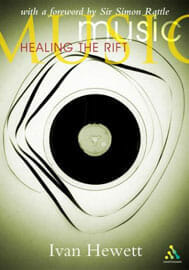Music: Healing the Rift

It’s always a pleasure to read a historical survey that covers huge amounts of ground nimbly and stylishly, with a refined yet decisive sense of judgment. In this small, brilliant book, composer, teacher and critic Ivan Hewett tells you pretty much everything you need to know in order to understand the evolution of the category known as “classical”/“art” music—its social role, how it splintered during the 20th century and why it still matters. Barreling through centuries, Hewett explains how music became unmoored from its largely functional role in the pre-Renaissance West, how the idea of a musical “work” independent of the specific moment of performance arose, and how we developed a sacred secular canon of classical works. Turning to the 20th century, he examines the fragmentation of art music, the multiple and contradictory paths composers took in order—ironically—to find an “authentic” gathering place for the fragments of Western music. In the process he explains why so much serious mid-century music is impenetrable.
-

-

-

-

-

-

-

-

-

-

-

-

-

-

-

-

-

-

-

-

-

-

-

-

-

-

-

-

-

-

-

-

-

-

-

-

-

-

-

-








































